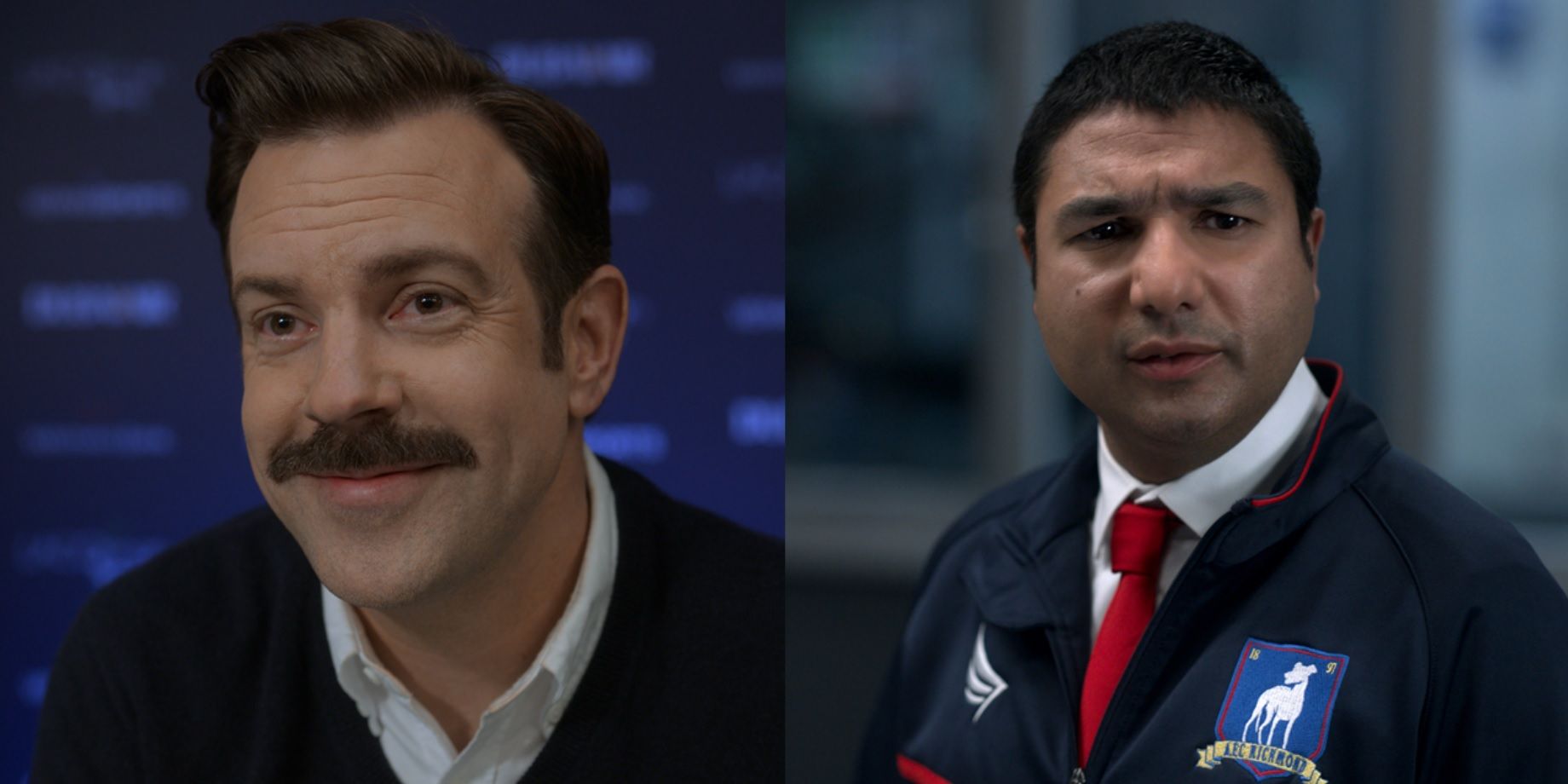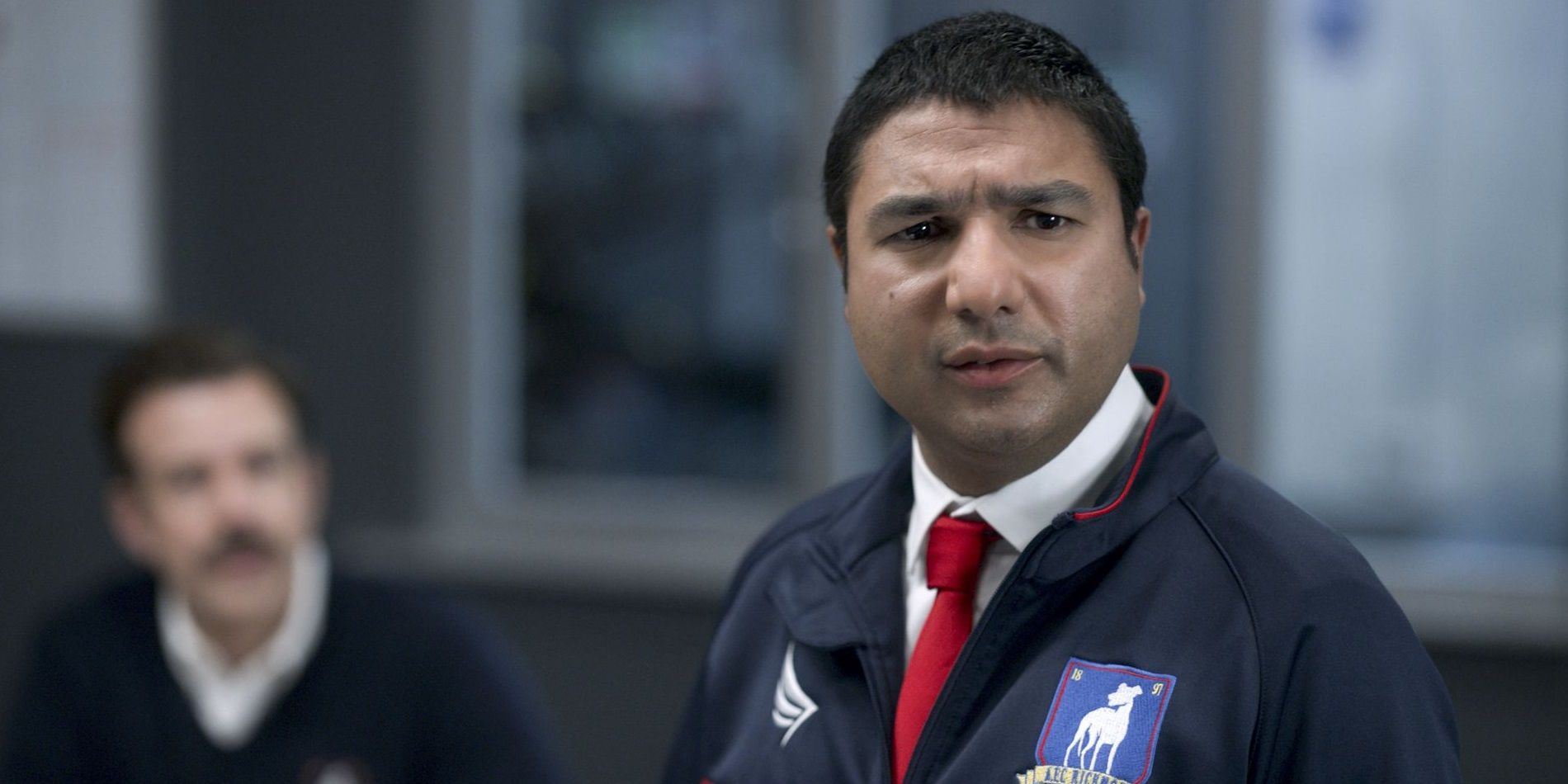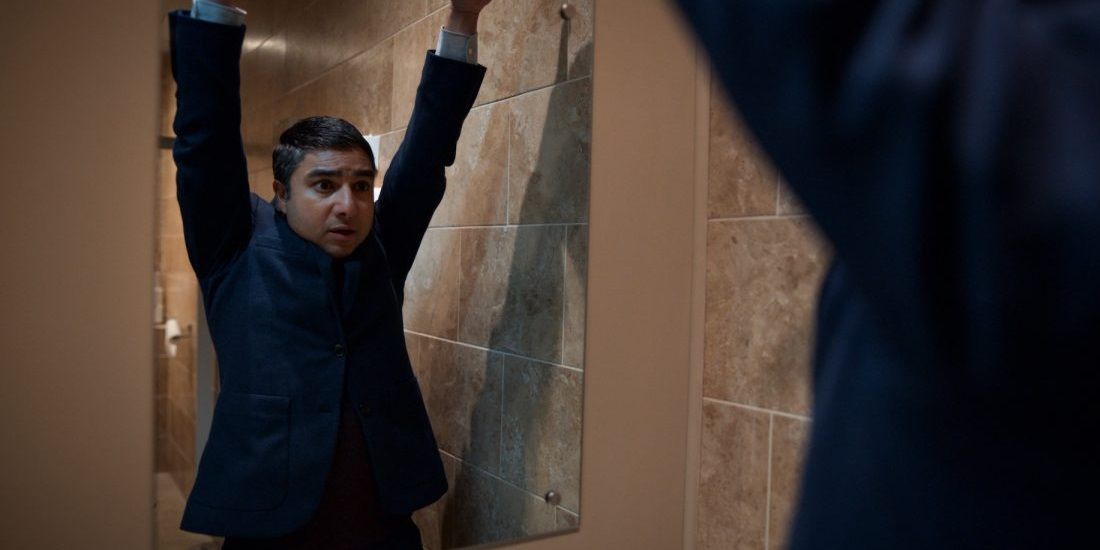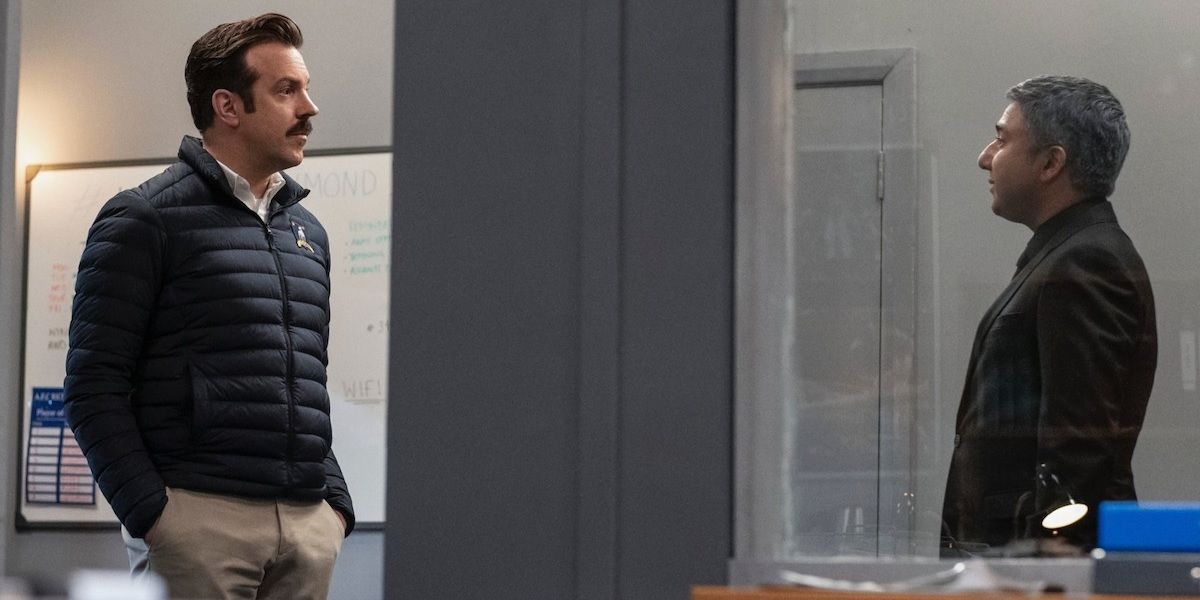When Apple announced a half-hour dramedy adapted from a series of NBC Sports promos, the series was naturally expected to bomb. But in the hands of star Jason Sudeikis and Scrubs creator Bill Lawrence, Ted Lasso has become one of the biggest TV hits in recent memory. The show was universally praised by critics, received a boatload of prestigious awards, and quickly attracted an audience of millions across the globe, thanks to its uplifting tone, moving performances, and relevant themes.
Non-sports fans are apprehensive about giving Ted Lasso a try, but only a couple of minutes of each episode are actually focused on soccer. For the most part, the series is about the characters and their interpersonal relationships. The locker room becomes a workplace like any other TV setting, like a paper company in Scranton or an NYPD precinct in Brooklyn or, indeed, a teaching hospital in California. The story of an American football coach traveling to the UK to coach a Premier League soccer team could’ve been a series of tired culture-clash gags. And, granted, Ted Lasso has a lot of tired culture-clash gags. But the show’s writers have dug a lot deeper than that.
In the NBC Sports promos that inspired the series, Sudeikis played Ted as a one-note character (there isn’t much room for nuance in a commercial). But with a flexible runtime and a supporting cast to bounce off of, the show has examined Ted’s toxic positivity in more depth. By the end of the second season, Ted sought therapy, addressed the stigma surrounding mental health struggles in athletics (an issue that sorely needs addressing), and unwittingly created his own arch-nemesis.
Nate’s Journey From Timid Sidekick To Villain
After the first season of Ted Lasso hit Apple’s streaming service, Nick Mohammed was one of four cast members to be nominated for Outstanding Supporting Actor in a Comedy Series at the Emmys. Brett Goldstein won for his hard-edged yet wholesome turn as the Roy Keane-inspired Roy Kent, but Mohammed could take home the award for his work in season 2 at next year’s ceremony.
In season 1, kit manager Nate Shelley was introduced as a timid sidekick who struggles to be noticed. When Ted arrives at Richmond’s grounds in the pilot episode, Nate is heartened when Ted actually takes an interest in him. Throughout the first season, Ted’s friendliness and positivity inspire Nate to come out of his shell and assert himself. Seeing Nate’s potential, Ted promotes him to assistant coach and promises him a bright future. But as Nate’s career at AFC Richmond goes on, he doesn’t feel Ted following through on that promise.
In season 2, the writers explored Nate’s dark side as he came out of his shell as Ted envisioned, but finds that his increased confidence doesn’t make much of a difference to the way that the world treats him. He’s still neglected by his colleagues, underappreciated by his superiors, and disrespected by the team. This brings out the worst in a previously sweet, non-threatening character. In one particularly powerful moment, Nate takes out his anger on Will, his own replacement as kit manager, in a poignant commentary on the vicious cycle of bullying.
Nate Has The Darkest Moments In TV’s Sweetest Show
When model-turned-marketing manager Keeley takes a liking to Nate, she inspires him to become more self-assured. In a heartwarming early episode of season 2, she teaches him how to assert himself at a fancy restaurant and get his parents seated at a lucrative table by the window. But, within a couple of episodes, the ugly side of this newfound confidence rears its head.
While Keeley is helping Nate pick out some new clothes and adjusting his tie, he lunges in for an unwanted kiss. It’s a painfully awkward moment, followed by a dramatic inversion of Nate spitting on his own reflection (it was previously an assertion of power; now, it’s an act of self-loathing). Keeley and her boyfriend Roy Kent – both co-workers of Nate – tell him not to worry about the unreciprocated advance and that it was just an honest mistake. But that’s likely just to avoid an uncomfortable environment at work, because Nate was clearly out of line. He knows Keeley is in a committed relationship, and on top of that, the writers know they’ve created a monster. This arc is paid off brilliantly in the finale with the villain reveal.
In a culmination of Nate’s surprisingly dark subplot, Ted Lasso’s second-season finale sets him up as a villain for season 3. Ted is already in a bad place at the beginning of the episode as a newspaper article exposes his matchday panic attack and he learns that the “anonymous source” who leaked it was Nate – and then AFC Richmond is (to use a term from a different sport) thrown a curveball. Just when Rebecca’s relationship with her adulterous ex-husband Rupert seems to be on track, he buys one of Richmond’s biggest competitors, West Ham United.
Ted Created His Own Arch-Nemesis
Before Ted can confront Nate about revealing his mental health struggles to the press, Nate confronts Ted about his perceived failure to recognize his efforts as the assistant coach. Nate’s incisive takedown of Ted highlights the negative impact of the coach’s empty optimism. It’s one thing to be nice to people all the time and encourage them to follow their dreams; it’s another thing to follow through and help them achieve those dreams. In Nate’s case, Ted always had a snappy motivational slogan to get him through the day, but he never gave him any long-term guidance. He tells his absurdly upbeat boss, “Everybody loves you – the great Ted Lasso – well, I think you’re a f****** joke. Without me, you wouldn’t have won a single match.”
The twist ending of the finale episode reveals that Nate has left Richmond behind to join the coaching staff of their new rivals, West Ham, under Rupert’s management. Like countless classic hero-villain dynamics, Ted has created his own arch-nemesis. In the third season, Nate will likely become a villain. Nate has the know-how that Ted lacks, lacks the leadership skills that Ted has, and is singularly determined to take Ted down. Whenever Ted Lasso returns for its highly anticipated third season, the writers have given themselves some exciting dramatic territory to explore.




